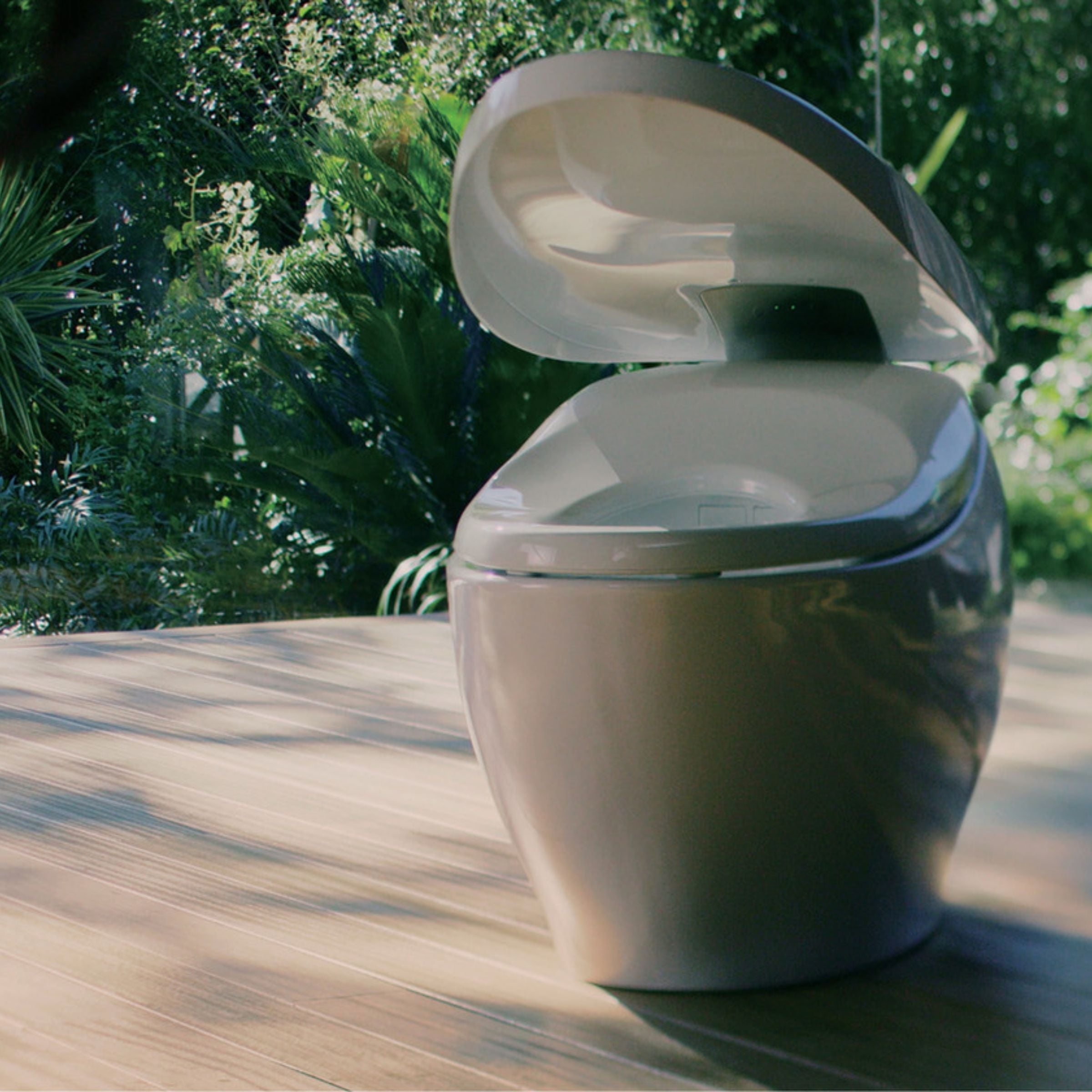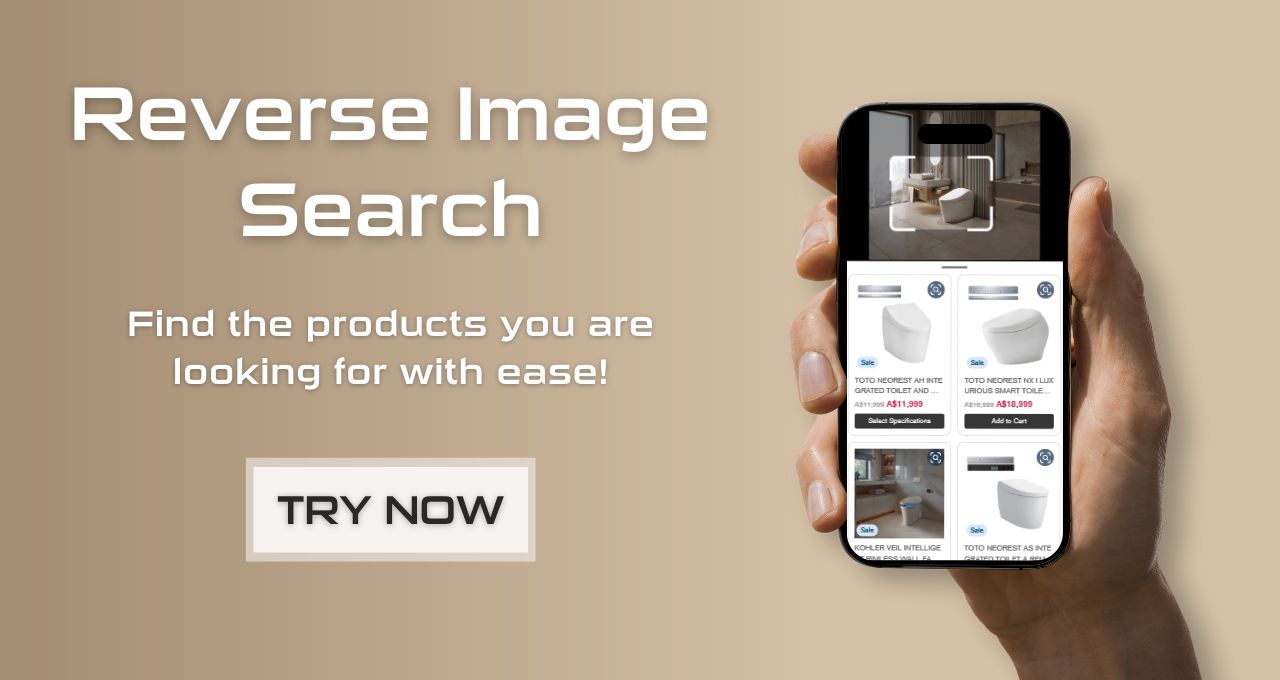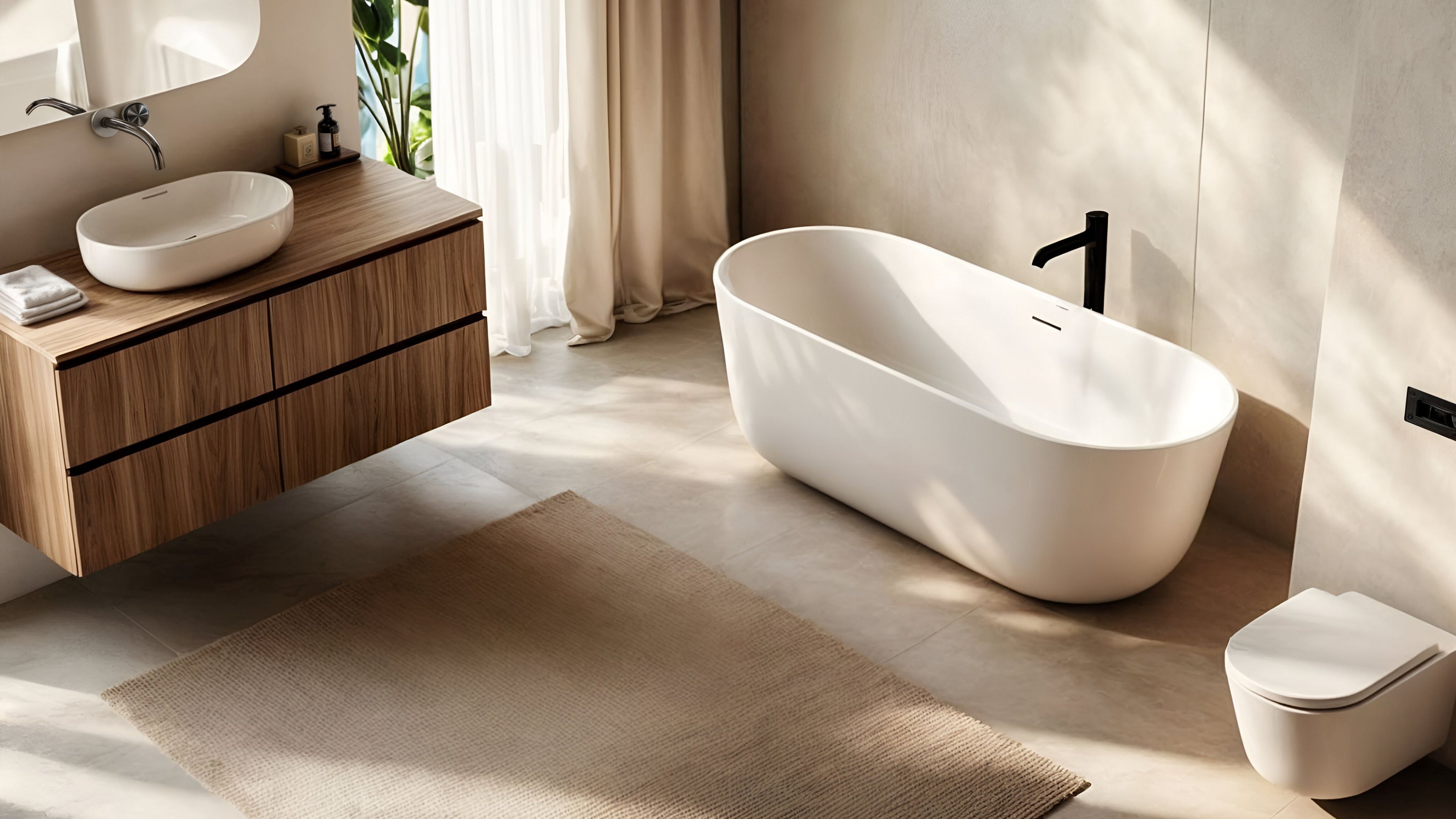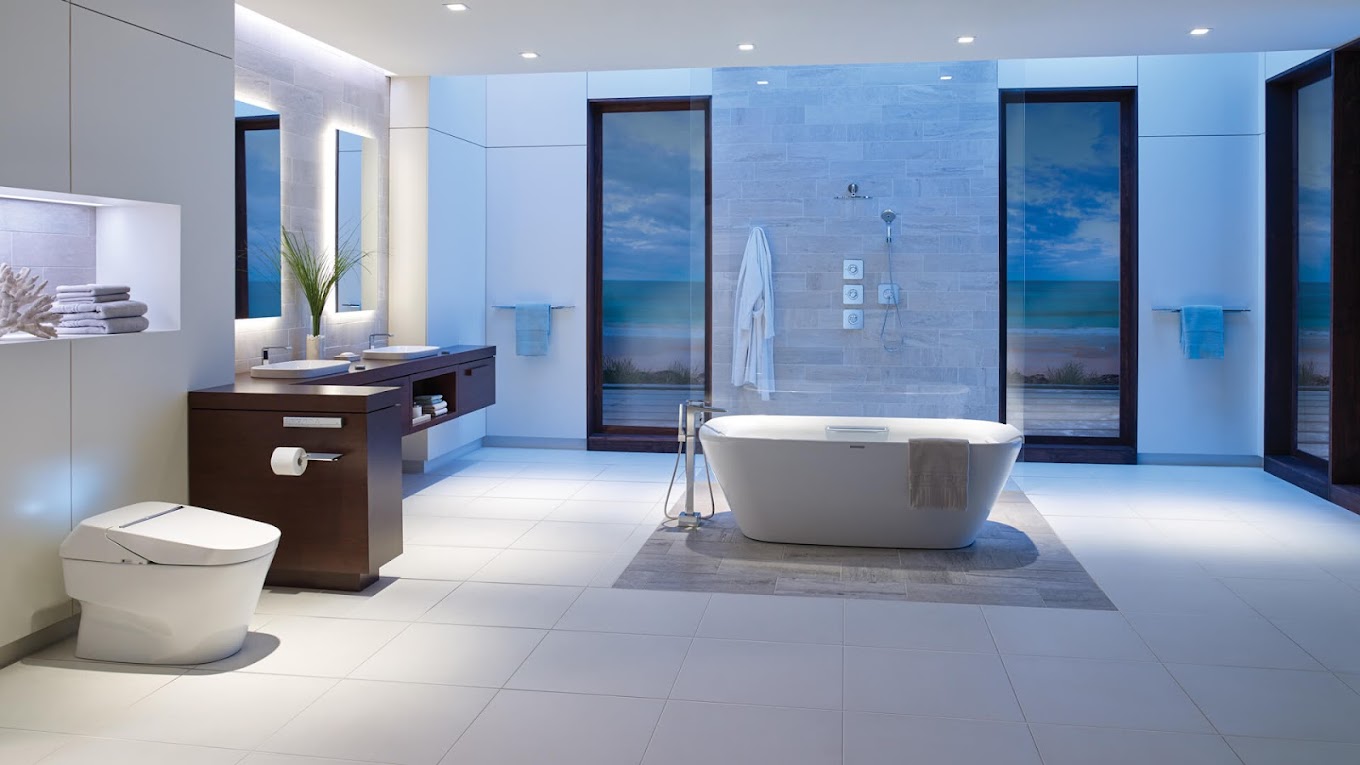Smart Toilet and Bidet Installation Costs in Australia
Smart toilets and bidets are quickly becoming part of modern Australian bathrooms, valued for their hygiene, water efficiency, and everyday comfort. Beyond choosing the right model, homeowners also need to budget for installation — and this is where costs can vary.
In Australia, installation typically starts from $150–$300 for a bidet seat and ranges from $500 to $1,200+ for a full smart toilet, depending on whether plumbing or electrical work is required and the tradesperson you hire. This guide unpacks what drives the cost, how to plan for installation, and when you’ll need a licensed plumber or electrician.
Average Bidet Installation Costs in Australia (By State)
State / Territory |
Basic Bidet Attachment |
Electric Bidet Seat (Washlet) |
Full Smart Toilet |
|
New South Wales (Sydney) |
$120–$270 |
$320–$650 |
$550–$1,250 |
|
Victoria (Melbourne) |
$120–$260 |
$320–$640 |
$540–$1,220 |
|
Queensland |
$110–$250 |
$300–$620 |
$520–$1,200 |
|
Western Australia |
$110–$240 |
$300–$610 |
$510–$1,150 |
|
South Australia |
$100–$230 |
$300–$600 |
$500–$1,100 |
|
Tasmania |
$100–$230 |
$300–$600 |
$500–$1,100 |
|
Australian Capital Territory |
$110–$250 |
$310–$620 |
$520–$1,150 |
Note: Costs vary depending on location, local plumber and electrician rates, and the complexity of the installation. Major cities like Sydney and Melbourne generally sit at the higher end of the range compared to regional areas.
Understanding the Installation Cost
These figures are best seen as averages rather than fixed prices. The final cost of installing a smart toilet or bidet depends on the model you choose, whether additional plumbing or electrical work is needed, and the hourly rates charged in your area. In larger cities such as Sydney and Melbourne, professional services tend to be more expensive, which places installations at the top of the range. Conversely, straightforward installations in newer homes or regional areas often fall closer to the lower end.
Cost Factors to Consider
1. Type of Unit
-
Bidet Attachments (Manual Sprayers): These are the most affordable options. A basic hand-held bidet sprayer or non-electric seat attachment typically costs around $25–$100 for the product itself. Many of these can be DIY-installed if you have an existing flexible toilet water supply line. Professional installation, if desired, is relatively quick, often under an hour – plumbers might charge on the order of $100–$150 for installing a simple sprayer attachment.
-
Electronic Bidet Seats (Washlets): Electric bidet seats with features like warm water, heating, and drying are mid-range in cost. In Australia, quality bidet toilet seats usually range from about $150 up to $400 or more for premium models (some high-end models can be $600+ depending on features ). Installation is typically a matter of swapping the toilet seat and adding a T-valve to the existing water line. A plumber may charge roughly $150–$250 to install an electric bidet seat. Keep in mind an electric bidet seat also needs a power outlet nearby – more on electrical costs below.
-
Smart Toilet: Smart toilets have the highest upfront cost. Smart toilets in Australia generally cost around $2,000 to $5,000 just to purchase the unit, reflecting their advanced features and design. Installation is more involved – essentially equivalent to installing a new toilet with additional connections. Most plumbers in Sydney, for example, charge about $250–$700 to install a standard toilet including labor and basic materials, and premium installations – such as wall-hung or smart toilets – may cost more due to extra complexity. In short, the more complex and feature-rich the unit, the higher the product and installation costs.
Plumbing Requirements
Every bidet or smart toilet needs access to the water supply. If your existing toilet has an accessible water shut-off valve and flexible hose, adding a bidet T-valve is straightforward. However, if modifications are needed – for example, installing new water lines or altering plumbing for a standalone bidet fixture – the cost rises. A licensed plumber will ensure the water connection is done to code, including proper seals and any necessary backflow prevention devices.
-
Minor Plumbing Adjustments: In many cases, installing a bidet seat or sprayer is a small job. Professional plumbers often charge a call-out plus hourly rate. In Australia, plumbers charge roughly $80–$200 per hour on average (varying by location). A simple bidet seat or sprayer installation can often be completed in well under 2 hours. Many plumbing companies quote a flat fee in the range of $150–$300 for installing a basic bidet attachment or seat , assuming no major complications. This would cover adding the T-valve, connecting the hose, and testing for leaks.
-
Backflow Prevention Requirements: Australian plumbing codes require that bidet outlets be protected against backflow contamination of the water supply. If the bidet’s spray wand or outlet sits below the rim of the toilet bowl, a high-hazard backflow prevention device must be installed as per standards. This often means the plumber will install an approved backflow prevention valve. While a simple T-valve may only cost a few dollars, a certified backflow device is more expensive and the added labor can increase the installation cost significantly.
-
Complex or New Plumbing Runs: If you are installing a standalone floor-mounted bidet fixture (separate from the toilet) or relocating plumbing, costs are much higher. This essentially becomes a bathroom renovation task, often costing hundreds or even thousands in plumbing work depending on scope. For instance, installing a separate bidet fixture can range from $800 up to $5,000 in total cost, including both the fixture and plumbing work, depending on complexity.
Plumbing costs depend on how “bidet-ready” your bathroom is. Homes with existing accessible water lines near the toilet will see minimal plumbing costs, whereas those needing new lines or special valves will pay more. Always use a licensed plumber for this work – not only is it legally required in Australia , but it ensures you receive a compliance certificate and that the installation meets warranty and safety standards.
Average Hourly Rates for Plumbers and Electricians (by City)
Labour is one of the biggest factors in the overall cost of installing a bidet or smart toilet. Prices in Sydney and Melbourne tend to sit higher due to demand and cost of living, while Hobart and Adelaide are more affordable. Most trades also charge a call-out fee ($60–$150), and after-hours or emergency work can cost 1.5–2x more. For straightforward installations, some plumbers and electricians may offer a flat package price, which can be simpler and sometimes cheaper than paying hourly.
City / State |
Plumber Rates (per hour) |
Electrician Rates (per hour) |
Notes |
|
Sydney (NSW) |
$80 – $250 |
$90 – $130 |
Highest in Australia; demand and cost of living drive prices up. |
|
Melbourne (VIC) |
$80 – $200 |
$85 – $150 |
Slightly lower than Sydney on average. |
|
Brisbane (QLD) |
$80 – $200 |
$75 – $110 |
Competitive rates; electricians cheaper than southern states. |
|
Perth (WA) |
$80 – $200 |
$90 – $115 |
Similar to Brisbane; relatively stable despite isolation. |
|
Adelaide (SA) |
$80 – $180 |
$80 – $100 |
Generally more affordable than east-coast capitals. |
|
Hobart (TAS) |
$80 – $150 |
$80 – $105 |
Smaller market; rates at the lower end of the national average. |
|
Canberra (ACT) |
$90 – $200 |
$90 – $155 |
High demand pushes rates to the top end, especially for electricians. |
Sources: Recent Australian cost guides and plumbing industry resources were used to gather the above price ranges and requirements. These include national averages and city-specific data on plumber/electrician rates , bidet product cost ranges from Australian retailers , and guidance from plumbing professionals on installation practices and standards. All monetary figures are in Australian dollars (AUD) and reflect typical costs as of 2024–2025. Keep in mind that actual quotes can vary; it’s always wise to get a personalised quote for your specific location and situation.
Warranty Coverage for Smart Toilets and Bidets
Most smart toilet and bidet manufacturers require professional installation for the warranty to remain valid. If you DIY and something goes wrong, coverage can be refused. For example, some suppliers only honour warranties if a licensed plumber installs the unit, and electrical warranties may also require a qualified electrician.
Using licensed trades also provides extra protection: plumbers issue compliance certificates to prove the work meets Australian standards, and electricians provide similar documentation for power connections. These certificates are important not just for warranties but also for insurance, as some policies won’t cover damage from unlicensed work.
While professional installation adds to the cost, it ensures your unit is installed safely, meets code, and keeps your warranty intact. Skipping this step can cost more in the long run if problems arise. Always check the fine print and budget for installation as part of the total investment.
What to Expect with Bidet Installation Costs in Australia
As a homeowner, here’s what you should keep in mind when budgeting:
-
Separate costs: The unit price and installation cost are billed separately. For example, a TOTO Washlet might cost between $1,000–$2,500 depending on the model, with installation adding $300–$600.
-
Location matters: Expect slightly higher rates in metropolitan areas like Sydney or Melbourne compared to smaller towns.
-
Electrical setup may be extra: If your toilet doesn’t already have a nearby power outlet, factor in the cost of hiring an electrician.
-
Warranty protection: Some brands require professional installation to keep your warranty valid. Skipping this may save money upfront but could cost more later if something goes wrong.
-
Older bathrooms may add surprises: Homes with outdated plumbing may need extra work, such as replacing valves or fittings, which adds to the bill.
One cost homeowners often overlook is delivery and shipping, which can vary depending on your location in Australia. Larger units like smart toilets can be heavier and more costly to ship than Washlets.
-
Metro areas (Sydney, Melbourne, Brisbane, Perth): Lower shipping fees due to logistics networks.
-
Regional or remote areas: Higher delivery costs due to transport distances.
To make it simple, Austpek Bathrooms offers a shipping calculator on every product page. Just enter your postcode, and you’ll get an instant estimate before checkout – no hidden surprises.
When budgeting for a bidet or smart toilet, consider not just the unit price but also plumbing, electrical, and potential upgrades that may come with installation.
Making the Most of Your Smart Toilet or Bidet Investment
Installing a smart toilet or bidet is a meaningful investment in both comfort and hygiene — but the value goes beyond the unit itself. To protect that investment, it’s essential to:
-
Check warranty conditions: Most manufacturers require installation by a licensed plumber (and in some cases, an electrician). Skipping this step can void coverage.
-
Ask about compliance certificates: These confirm the work meets Australian standards and may be needed for warranty and insurance.
-
Factor in real installation costs: Beyond the unit price, budget for plumbing, electrical work, and mandatory backflow prevention, which can add several hundred dollars to the job.
At Austpek Bathrooms, we believe making a premium upgrade should feel transparent and straightforward. That’s why we share clear price ranges and guidance, helping you plan with confidence. With our curated range of TOTO Washlets and smart toilets, you know both the product and the installation will meet the highest standards.
Explore our premium smart toilet and bidet collection today - and upgrade your bathroom with clarity and confidence.
Frequently Asked Questions (FAQs)
-
How much does it cost to install a bidet in Australia?
-
On average, installation ranges from $300–$600 for an electric bidet seat, and $500–$1,200 for a smart toilet. Simple manual attachments may cost as little as $100–$250.
-
How much does it cost to get a bidet installed?
-
It depends on the model. Basic seats are cheaper, while advanced Washlets and smart toilets require plumbing and electrical work, which increases installation costs.
-
Do you need a plumber to install a bidet?
-
Yes, for electric and smart toilet models, a licensed plumber (and sometimes electrician) is recommended. This ensures safe installation and protects your warranty.
-
Do I need a plumber to install a bidet seat?
-
Not always. Manual seats can be DIY, but electric Washlets and premium seats should be installed by a plumber to avoid leaks, electrical issues, and warranty problems.






